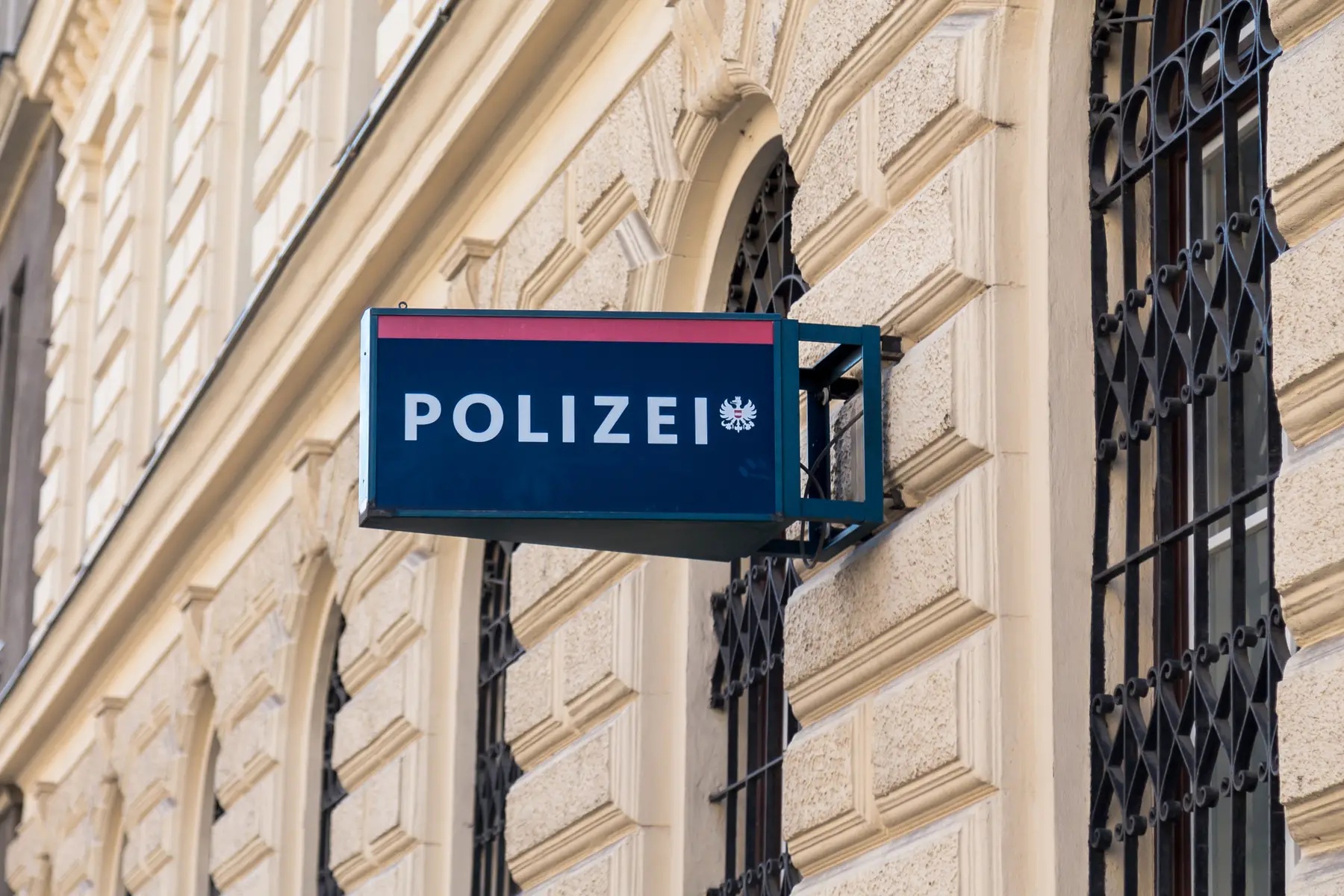If you are relocating abroad, it is important to know how the country handles crime when it comes to its citizens and those from abroad. And if you are looking into the legal system and crime in Austria, you might also want to read up on the government and political system as well as human and civil rights; not to mention women’s rights and LGBT+ rights.
But first things first, this helpful guide outlines everything you need to know about the laws and crime in Austria, including the following:
- The criminal justice system in Austria
- Crime in Austria
- Protecting yourself against crime in Austria
- Reporting a crime in Austria
- The legal system in Austria
- The trial process in Austria
- Punishments in Austria
- Capital punishment in Austria
- Most serious crimes in Austria
- Theft and burglary in Austria
- Terrorism offenses in Austria
- Drug and alcohol-related offenses in Austria
- Fraud in Austria
- Driving and traffic offenses in Austria
- Hate crimes and crimes of racial or religious hatred in Austria
- Immigration-related crimes in Austria
- Your rights if you are arrested in Austria
- Legal rights for foreigners in Austria
- Useful resources
Ground News
Get every side of the story with Ground News, the biggest source for breaking news around the world. This news aggregator lets you compare reporting on the same stories. Use data-driven media bias ratings to uncover political leanings and get the full picture. Stay informed on stories that matter with Ground News.
The criminal justice system in Austria
The Criminal Intelligence Service Austria (BK) began in 2002. Comprising seven departments, it acts as a service center to guard against international organized crime. It is Austria’s Criminal Investigation Department (CID) headquarters and disseminates the Crime Monitor information, which is a database of all police reports and complaints. In 2012, a Cybercrime Competence Center was set up.

And later, in 2016, the BK opened a new Joint Operational Office to combat human smuggling and human trafficking in Vienna. The Federal Agency for State Protection and Counterterrorism (BVT) was also established in 2002. The main responsibility of the agency is to combat extremist, illegal arms, and the proliferation of weapons of mass destruction.
Essentially, in Austria, the ordinary courts are organized in four stages of the Austrian Judiciary. Some 115 district courts, 20 regional courts, 4 higher regional courts, and the Supreme Court carry out the judicial tasks. Generally, misdemeanors in Austria follow the law on administrative penal offenses. Typically, a fine is the most common penalty, but in Austria, these administrative penalties do not go into the criminal register.
Crime in Austria
Remarkably, as of 2017, Austria (with a population of around 8.795 million) had an intentional homicide rate of 0.61 per 100,000 people. This is one of the lowest rates in the world. Generally speaking, crime is fairly uncommon across the board with most reports concerning pickpocketing.
Protecting yourself against crime in Austria
Generally, the crime rate in Austria is low for all manner of crimes from serious to minor. However, you can still fall victim and should protect yourself accordingly. Petty theft and pickpocketing can happen in urban areas like Vienna. As such, you should ensure that your belongings are secure before going out to densely populated areas.
Cybercrime is on the rise globally and affects Austria at a similar rate to the rest of Europe. As such, it is important to maintain strong passwords and be aware of potential scams. This includes watching out for any suspicious emails or phone calls from individuals masquerading as bank tellers or government officials. Of course, never give out your personal details unless you are sure of where you are sending them.
Reporting a crime in Austria
If you are a victim of crime in Austria
If you are the victim of a crime in Austria, you can first report it to the police or choose to report it to a public prosecutor. Alternatively, you can submit a report via a third party in writing with your signature. If you are submitting a written report, try to include any possible evidence along with the facts of the crime. Additionally, you may want to include your personal details in the report; although this is not a requirement.

Notably, if you don’t speak German, you have the right to an interpreter free of charge. Also, there is no deadline for reporting a crime. That said, depending on the crime, if you leave it too long, the police might refuse to look at it. After reporting a crime, you may ask for a reference number. If you call your corresponding police station and quote this number, you can get in touch with the officer in charge of your case. Typically, you have the right to access the files pertaining to your case.
As a victim, the police should tell you about your rights. Furthermore, they should give you details of victim support services and tell you the possibilities for compensation. This may either be from the offender or from the state.
Importantly, if you are a victim of domestic violence or sexual violence, you must be informed about the release of the offender. If you are reporting a crime of sexual violence, you have the right to ask for a police officer of the same sex. Additionally, you have the right to a private trial. Victim assistance services also include interpretation which the Federal Ministry of Justice funds.
Witnessing a crime in Austria
If you have been witness to a crime in Austria, you may need to go in for an interview to give testimony. Importantly, the only people that can be in your interview with you are the officials performing the interview along with your lawyer and your confidant. However, if there is a reason that you may not testify at trial, a magistrate might also be present. In this case, the offender and his or her lawyer, along with other victims, are able to be present and ask questions.
Essentially, you can refuse to answer questions under certain circumstances; for example, if you consider the questions about details of sexual offenses unacceptable, or if you feel the answer would be shameful or cause considerable financial loss. That said, if your testimony is necessary for the case, they can demand an answer.
If you are under the age of 14, you have the right to have an interview with a specially trained police officer in the presence of a confidant. Notably, if others are present in your interview, they must not disclose your personal information such as your home address.
The legal system in Austria
The legal system in Austria is based on the civil law tradition and is rooted in Roman law. Austria’s law consists of public, private, and criminal law. Primarily, lawyers practice private and criminal law either individually or with a firm in Austria.

The Allgemeine Bürgerliches Gesetzbuch is the law code that regulates the lawyers. Essentially, private law pertains to civil, commercial, and employment legal matters. In Austria, criminal lawyers must work under the “Fair Trial” tenet which means acquittal if there is still doubt by the end of the trial.
Courts in Austria
The Verfassungsgerichtshof is Austria’s Constitutional Court. It protects the civil rights of Austrian citizens and ensures that trials run according to the Austrian Constitution. However, the Oberster Gerichtshof (Supreme Court) is the most powerful Austrian court. This is where criminal and civil cases end up if they have gone through every other avenue first.
Police in Austria
In Austria, the city police are the Stadtpolizei. As of 2005, the three separate institutions of Federal Security Police, General Federal Police (Gendarmerie), and the Criminal Investigation Department merged into the Federal Police Department.

The Federal Minister of the Interior is the highest authority for law enforcement in Austria. Then, the Regional Police Directorates acts as the federal authorities in individual provinces. Additionally, district administrative authorities report to the Regional Police.
Prisons in Austria
In essence, the Austrian penal system is a modern care system that focuses on human rights and the rehabilitation of inmates. While serving a prison sentence, prisoners have a structured routine and spend most of their time outside of their cells. Essentially, they are working, partaking in educational activities, in treatment, or playing sports or leisure activities. As a rule, the standard minimum of one hour outdoors is exceeded.
There is only one juvenile correctional institute in Austria, The Prison for Juveniles Gerasdorf. This can house up to 122 prisoners. It incorporates psychologists, psychiatry, social workers, social pedagogues, occupational therapists, psychotherapists, and school and apprenticeship workshops into its program of rehabilitation.

Disappointingly, the incarceration rate has risen since 2019 to 105.6 per 100,000 people. However, this is still extremely low when compared to the United States which held the highest prisoner rate at 655 per 100,000 in 2020. The 27 Austrian prisons and their 13 outposts have detained 8,800 persons over the last few years.
In principle, none of the different prisons of Austria are designated specifically for foreigners. However, those awaiting deportation are kept in separate centers.
The trial process in Austria
Effectively, the Österreichische Justiz (Judiciary of Austria) resolves disputes between residents or between residents and the government, as well as holding criminals accountable, and maintaining the Austrian and European constitutions. It also works to uphold international human rights standards and the general rule of law.
For regional courts, trials happen before a panel of three professional judges. Sometimes, an additional two expert lay judges will assist with employment and social assistance cases. The Austrian constitution protects certain elements of procedure for criminal defendants.
These include the following:
- the presumption that one is innocent until proven guilty
- the right to a speedy trial
- one cannot be tried in absentia
- a person cannot be forced to incriminate themselves
- one cannot be prosecuted for the same crime twice
- they cannot be tried for transgressions that are not specifically defined to be criminal offenses by statutory law. Furthermore, for transgressions that were not specifically defined to be criminal offenses by statutory law at the time they were committed
- have the right to an appeal
Punishments in Austria
The Criminal Register records all criminal offenses. Additionally, convictions are removed from the Register when they expire, which is generally when the penalty ends. However, sometimes they can extend up to 15 years after the penalty. That said, there is one exception to this: a life sentence is never removed from the Criminal Register. Austria also has a sex offender registry, however, it is for law enforcement use only.
Capital punishment in Austria
Austria abolished the death penalty completely in 1950. As of 2019, all countries in Europe had abolished the death penalty for both civilian and military crimes. The only exception is Belarus.
Most serious crimes in Austria
Austria has one of the lowest crime rates in Europe, and violent crime is rare. Murder can result in life imprisonment in Austria for 15 years, but up to the remainder of the offender’s life if clemency is not approved. The sentence for rape ranges from six months up to ten years in prison.
Theft and burglary in Austria
In Austria, the majority of minor crimes are break-ins, pick-picketing, vandalism, and drug offenses. However, the crime rates are still incredibly low in comparison to other countries and overwhelmingly non-violent.

In 2018, the robbery rate for Austria was 26.9 cases per 100,000 population. This was a dramatic drop from 2004 when it was 58.4 cases per 100,000. Ordinarily, theft, fraud, or any offense against property can result in up to six months behind bars or a fine of up to 360 daily rates. However, in aggravated cases of offenses against property, a prison sentence may be for up to ten years.
Terrorism offenses in Austria
Essentially, the tariff for punishment is 50% more severe for terrorists than for domestic criminals. Effectively, a terrorist faces a maximum of twenty years in prison. This includes cyberspace attacks, transnational terrorism, dissemination of weapons of mass destruction, and globalization of regional conflicts. The Austria security policy also details terrorist financing with a potential punishment of imprisonment for between one and ten years.
Drug and alcohol-related offenses in Austria
Generally, penalties for drug law offenses depend on the quantity rather than the type of substance. Possession can lead to a punishment of up to a year in prison or a fine. However, if possession is above the threshold for personal use, this can rise up to three years’ imprisonment for narcotic drugs or up to two years for psychotropic substances. For supply offenses, punishments can be up to five years’ imprisonment and up to 15 years. Prison sentences are mainly linked with drug trafficking, which is generally punished with imprisonment.
Fraud in Austria
In Austria, fraud is separated into aggravated fraud, commercial fraud, and insurance fraud. Typically, imprisonment is up to six months or a monetary fine not exceeding 360 penalty units. However, in cases of aggravated fraud (using a false legal document or damages exceeding €5,000), the punishment is imprisonment for up to three years. Additionally, in cases of damages exceeding €300,000, imprisonment can be up to 10 years.
Money laundering is defined as the concealment of the illegal origins of income from certain criminal activities. The punishment for this can be imprisonment for up to three years if the value exceeds €50,000. Additionally, if money laundering is continual rather than a one-off offense, the sentence can rise up to ten years.
Driving and traffic offenses in Austria
In Austria, the courts don’t deal with minor road-traffic offenses. Typically, administrative authorities deal with traffic misdemeanors with the points system. Notably, this applies to foreigners as well as Austrian citizens.

For minor violations, fines start at €30 and go up to €150. These can be for parking violations, speeding, and things like texting while driving. Fines must be paid within 14 days. Usually, for driving under the influence, the fines are much higher and result in the loss of license for a period of time.
Hate crimes and crimes of racial or religious hatred in Austria
In Austria, hate crimes where any person is violent towards another for reasons of race, color of skin, language, religion, sex, disability, age, or sexual orientation faces imprisonment up to two years.
In 2019, a hotline in Austria for victims of racist incidents received 1,920 complaints the previous year. Most (over 60%) were targeting Muslims and migrants and were online. Currently, Austria’s online hate speech laws are being drawn up and will allow for a free of charge cease and desist order for victims of online hate speech. Platforms will need to set up reporting systems and delete criminal content within 24 hours of receiving a complaint.
Immigration-related crimes in Austria
Under the Dublin Regulation, an asylum seeker must seek asylum in the first EU state they reach. If they are found to have come through another EU country, they can be sent back there. In 2015, there were over 90,000 applicants for asylum in Austria. This equates to more than 1% of the population. New bills in parliament will allow authorities to seize up to €840 of cash, which they say they will use to pay for the upkeep of migrants awaiting processing for their asylum claims.
Your rights if you are arrested in Austria
Importantly, the Austrian Code of Criminal Procedure states that anyone under accusation is told of his or her rights “as soon as possible.” The latest this can be done is before an interrogation by police begins. You also have the right to make a statement or to remain silent. You also have the right to consult a defense attorney. Notably, in Austria, lawyers are not able to charge commissions or brokerage fees. You can use the ‘Find a Lawyer’ function on the official website of Austrian Lawyers.
Generally, in civil matter cases, litigants do have a right to appeal if they are aggrieved by the decision because it has a direct and adverse effect upon their person or property. In cases where the amount in dispute is under €2,700, there are only certain circumstances that allow for an appeal.
For general information about legal protection against a decision by an administrative authority, visit this website.
Legal rights for foreigners in Austria
If you are a foreigner and a victim of a crime in Austria, you have the same rights mentioned above as a regular Austrian citizen. Austria is in the process of making changes to its deportation laws for asylum seekers.
Essentially, the new rules would make it faster to deport asylum seekers who commit crimes, even minor ones. Additionally, the current six years to become an Austrian citizen will rise to ten years. Furthermore, the current restricted movements on rejected asylum seekers will be further bound to only allow movement within the district they live in. Helpfully, the Austria pro bono directory provides information on legal aid for refugees.
Extradition treaties
If a non-EU member state requests extradition, a refusal to extradite is only possible if the person is an Austrian citizen. Ordinarily, this means that being an EU citizen with permanent residency in Austria isn’t enough.
Useful resources
- Justiz – the Austrian judiciary website
- Bundeministerium Justiz – the Federal Ministry of Justice website





